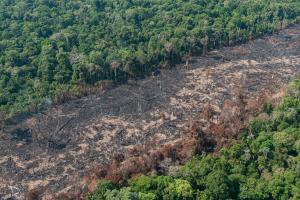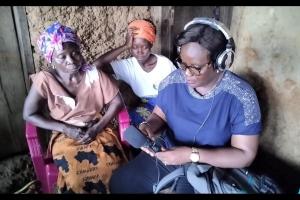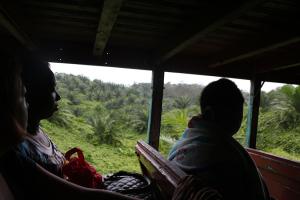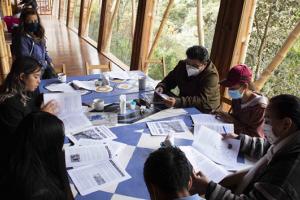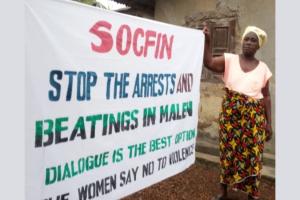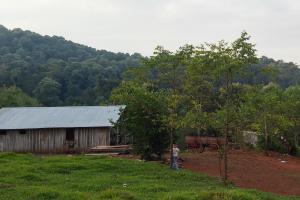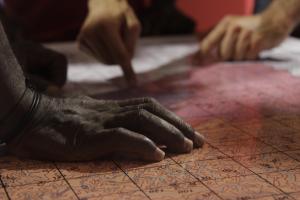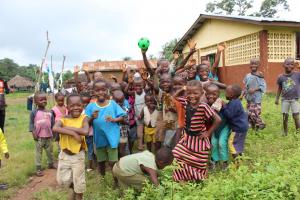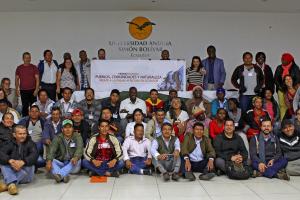Palm Oil
The oil palm tree is native to West Africa. It is an important tree for forest-dependent communities, their cultures and their economies. However, large-scale oil palm monocultures for industrial production (oil and agrofuels) have been driving deforestation and land grabbing in Southeast Asia. More recently, oil palm monocultures are also driving destruction in Africa and Latin America.
Communities resisting the impunity and impacts of oil palm growers in Ecuador: Cases from Esmeraldas
One of the main causes of deforestation in Mesoamerica is the expansion of oil palm monoculture. An exchange of experiences brought together representatives from indigenous and peasant communities to coordinate their resistance.
Oil palm company Socfin has meant oppression for affected communities. Yet, women have to confront another patriarchic system. Paramount Chiefs are the custodian of the land according to customary law, which often give men decision-making and ownership power over land.
Patriarchal oppression is inseparable from the industrial plantation model, and it is at the base of how companies generate profits. Companies target women, including due to their fundamental role in community life.
While the destruction of forest territories continues, more pledges, agreements and programs are being implemented in the name of ‘addressing deforestation and climate change’.
The expansion of oil palm and logging in Wimbí is a fact. And in both cases, the protagonist is the same: the land trafficker who allowed the palm company, Energy & Palma, to enter. This new cycle of dispossession threatens the culture and survival of the community.
Villagers in Sierra Leone Ponder their Future after Winning their Lands Back from a Palm Oil Company
After a decade of struggling against a company that grabbed their lands and erected oil palm plantations, a court has ruled that the lands must be given back to the communities. Now they are trying to figure out what they should do with the large areas of lands that have been occupied by oil palms. (Available in Swahili).
Certification schemes for tree plantations initially generated many expectations, promising a true transformation. Yet after all these years, we can definitely conclude that what the RSPO and FSC also have in common is that they will not meet those expectations.
In Ecuador, the expansion of industrial oil palm plantations is the main cause of deforestation. A meeting to exchange knowledge, the first of its kind in Ecuador, brought together leaders from oil palm-affected provinces from the three regions of the country.
